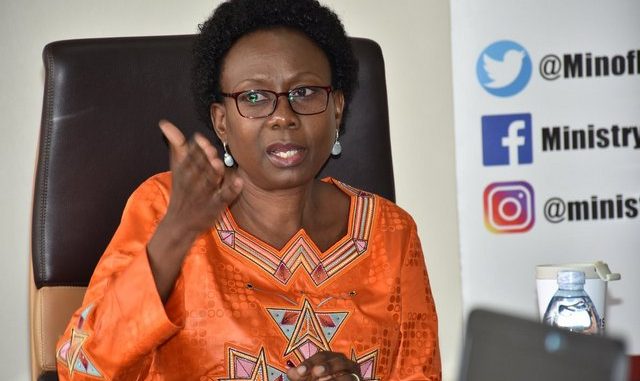The Health Insurance bill that was recently approved by parliament does not favour all Ugandans, the Health Minister, Dr. Jane Ruth Aceng has revealed. According to the Minister, the bill doesn’t address the concerns raised by the stakeholders who are expected to contribute to the scheme.
She disclosed this during celebrations to commemorate World Health Day in Kampala on Thursday. The Health Insurance bill seeks to provide health care for all Ugandans at an affordable cost with funding from Ugandans both in the formal and informal sectors.
Those employed in the formal sector are supposed to contribute 4 per cent of their salaries backed by a one per cent contribution from their employers. Individuals in the informal sector are supposed to contribute Shillings 100,000 annually. The bill exempts the poor from contributing.
The General Duties Health Minister tried in vain to stop parliament from approving the bill. Dr. Aceng explains that the Health Ministry wanted to withdraw the bill and make some corrections since many people are dissatisfied with its current form.
She says that they will need to include the changes agreed upon with the stakeholders after making consultations. One of the proposed changes is for all Ugandans, regardless of their employment status, to pay a certain amount of money to access health care.
The other changes agreed upon include using available tax collection agencies to collect the monies for the scheme. Also, usage of the scheme will be mandatory in the country for all basic health care service. The current bill makes it optional for Ugandans to use the scheme.
According to Aceng, the proposed changes they wanted to be included in the bill were made by President Museveni. “If you ask me whether it will be signed into law, I leave you to answer that question because this complaint was out on the desk of the one who was supposed to sign it into law and he said wait a minute before you proceed to consult. We have consulted widely, the insurance regulatory bodies, the ministry of health and others are doing actual studies to determine how much people should pay to include those in the communities,” she said.
The approval of the bill comes at a time when the country is experiencing increasing numbers of COVID-19 cases. Dr. Yonas Woldermariam, the WHO country representative, says health equity is needed for the country to be able to address the disease and its effects.
“Unless we ensure that our health systems have equity and all people can access health care when and if they need it, the COVID-19 variants cropping up will affect us. People suffering from comorbidities will be affected more since the variants we have seen are more infectious. These people need to be able to access care when they need it,” he said.
The bill now awaits the assent of the President before it is implemented.





